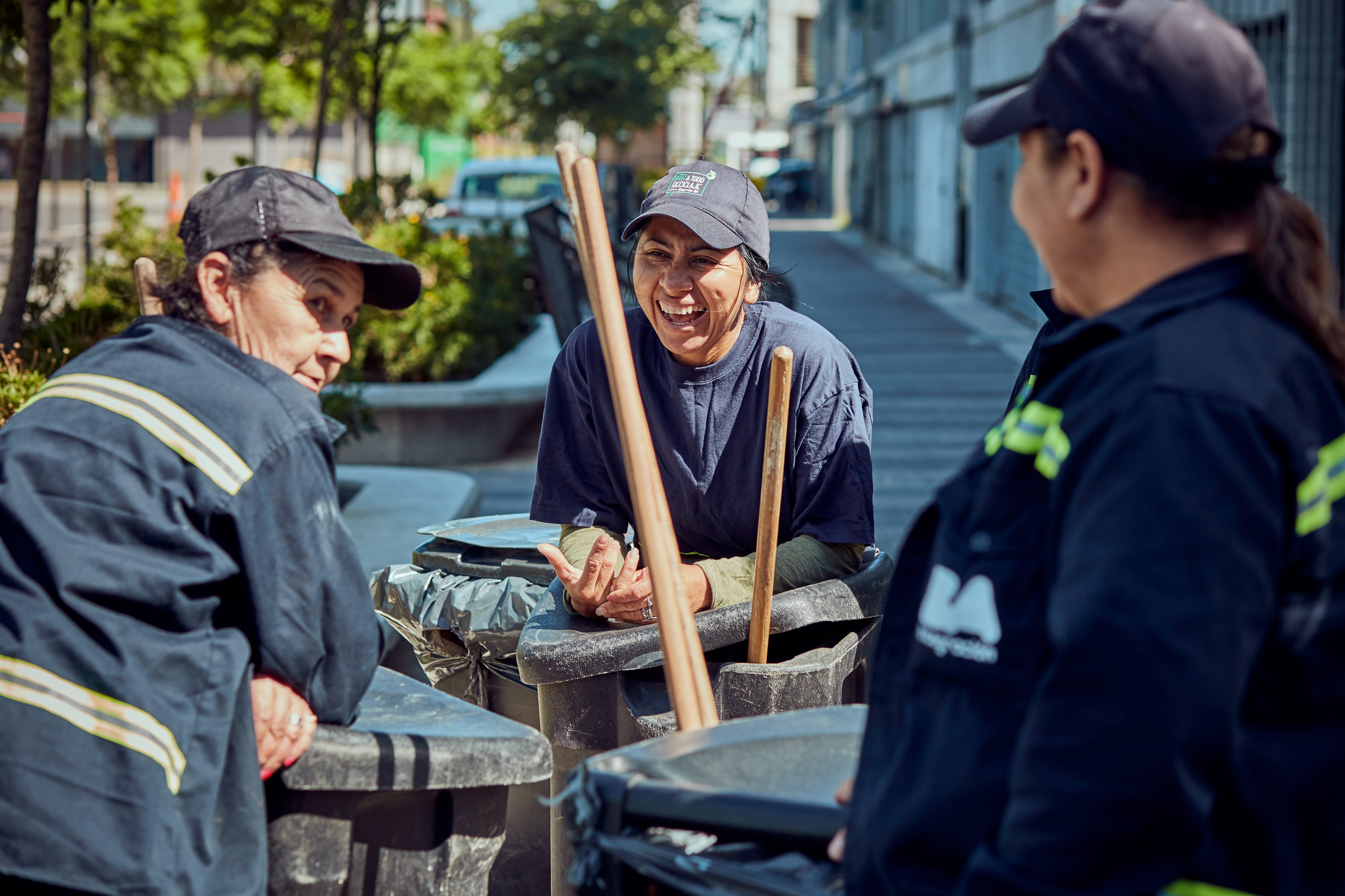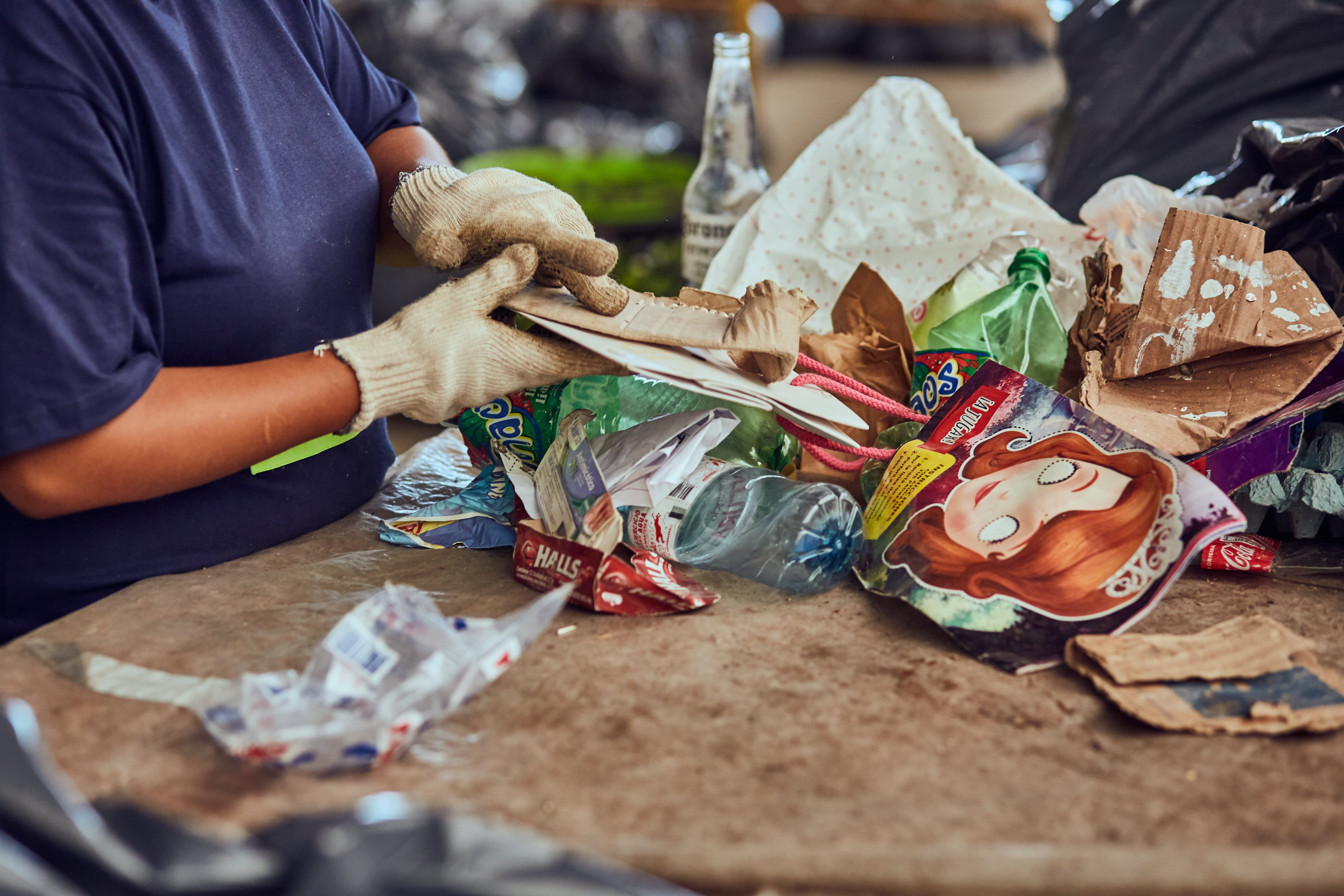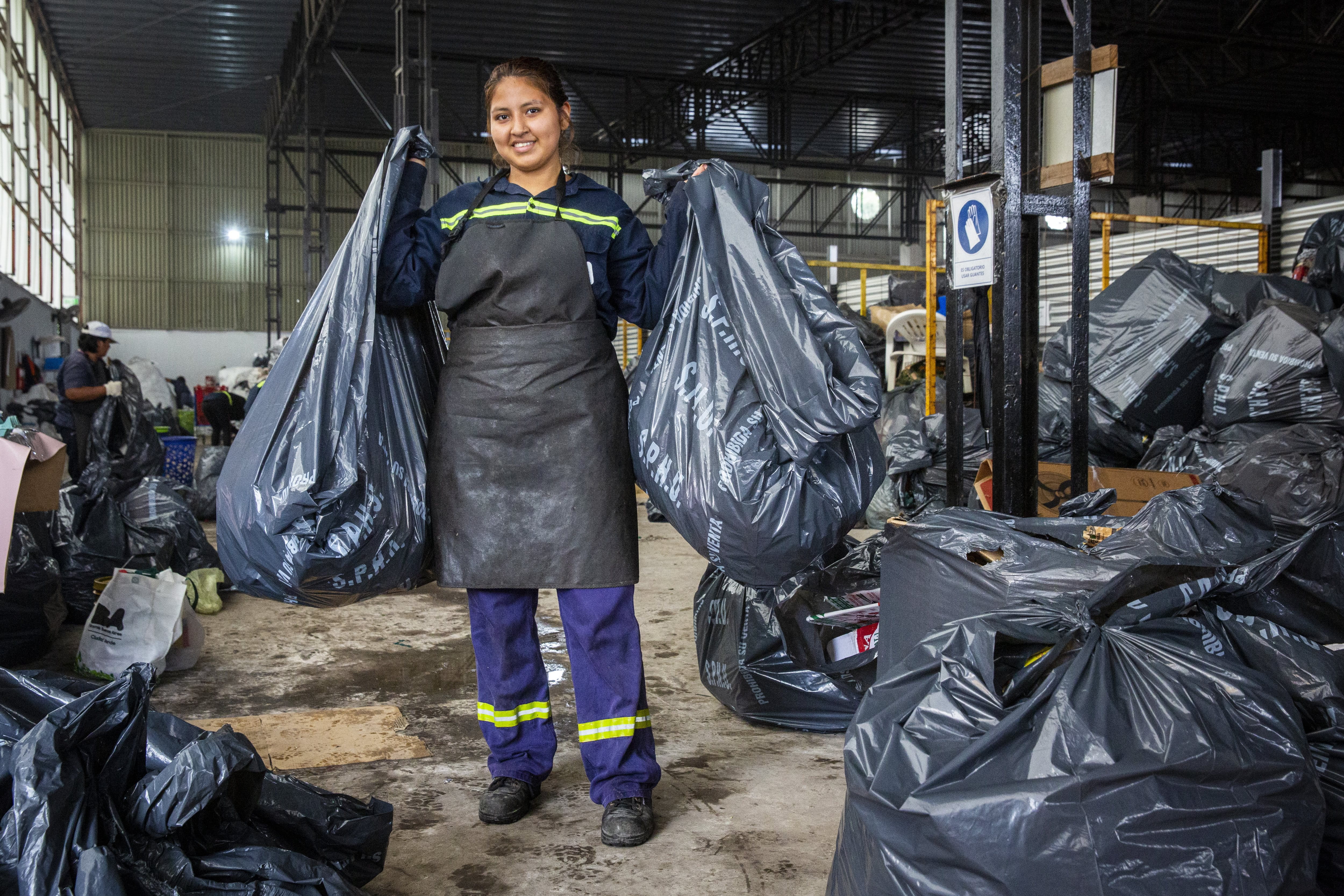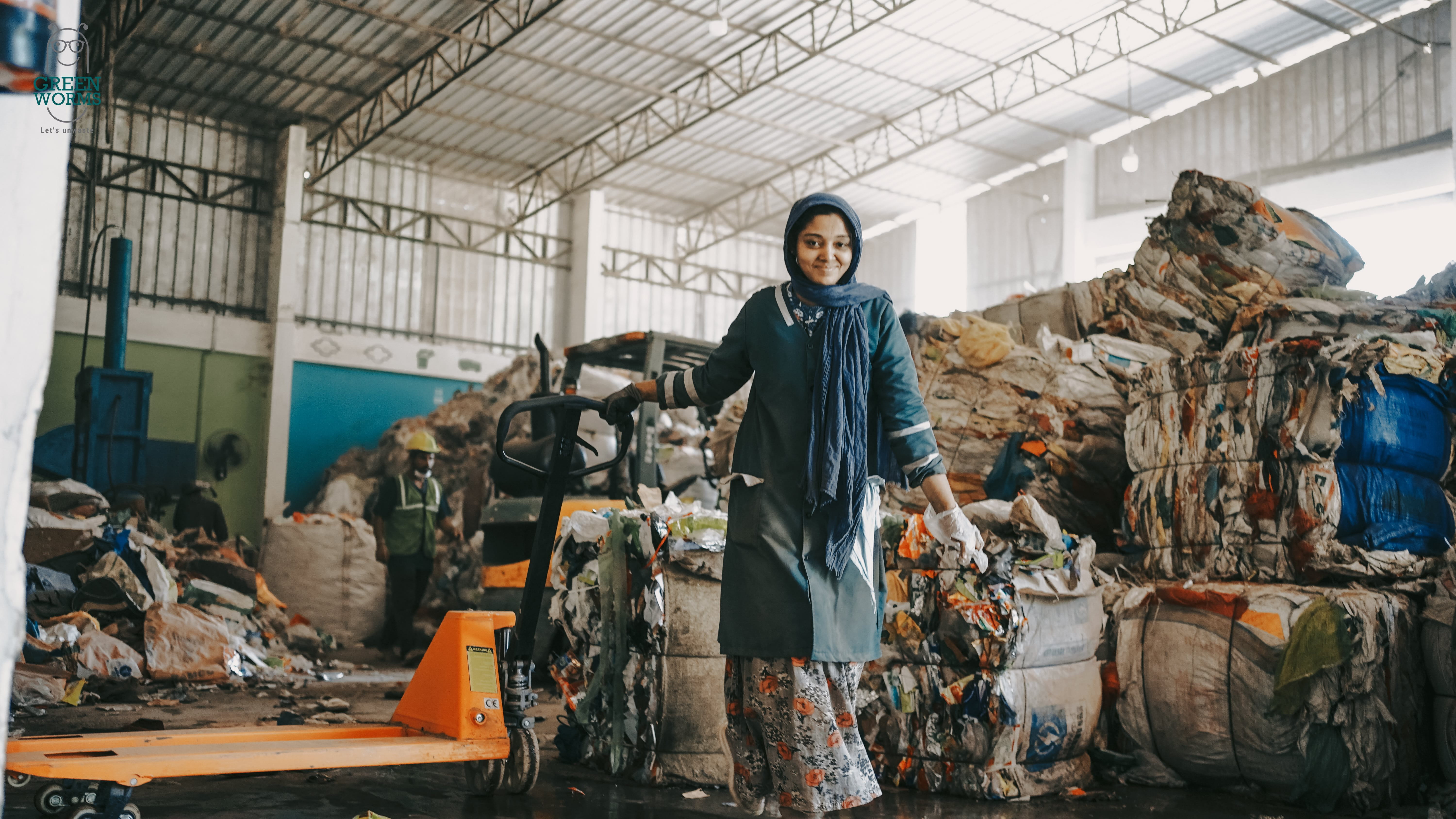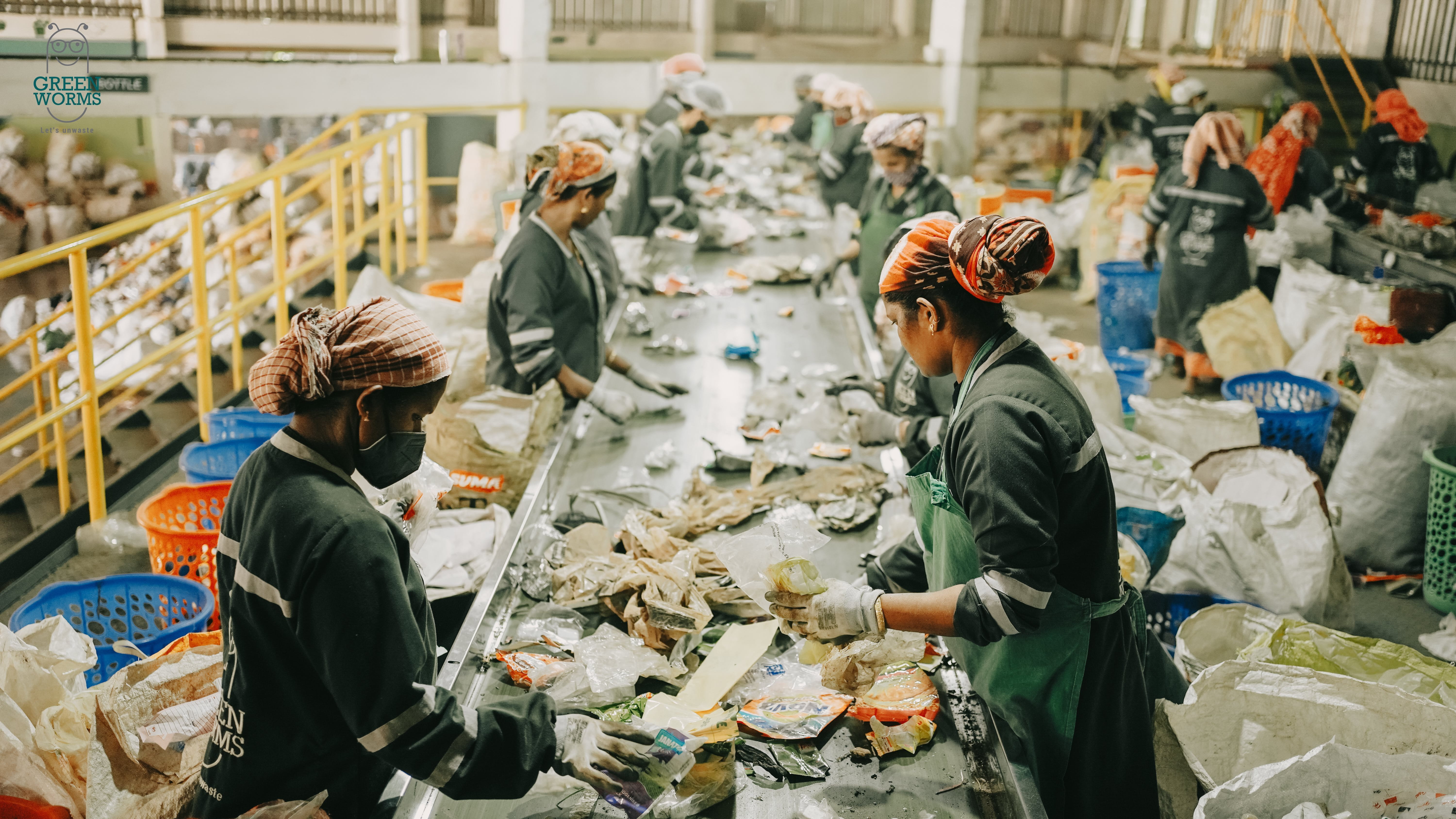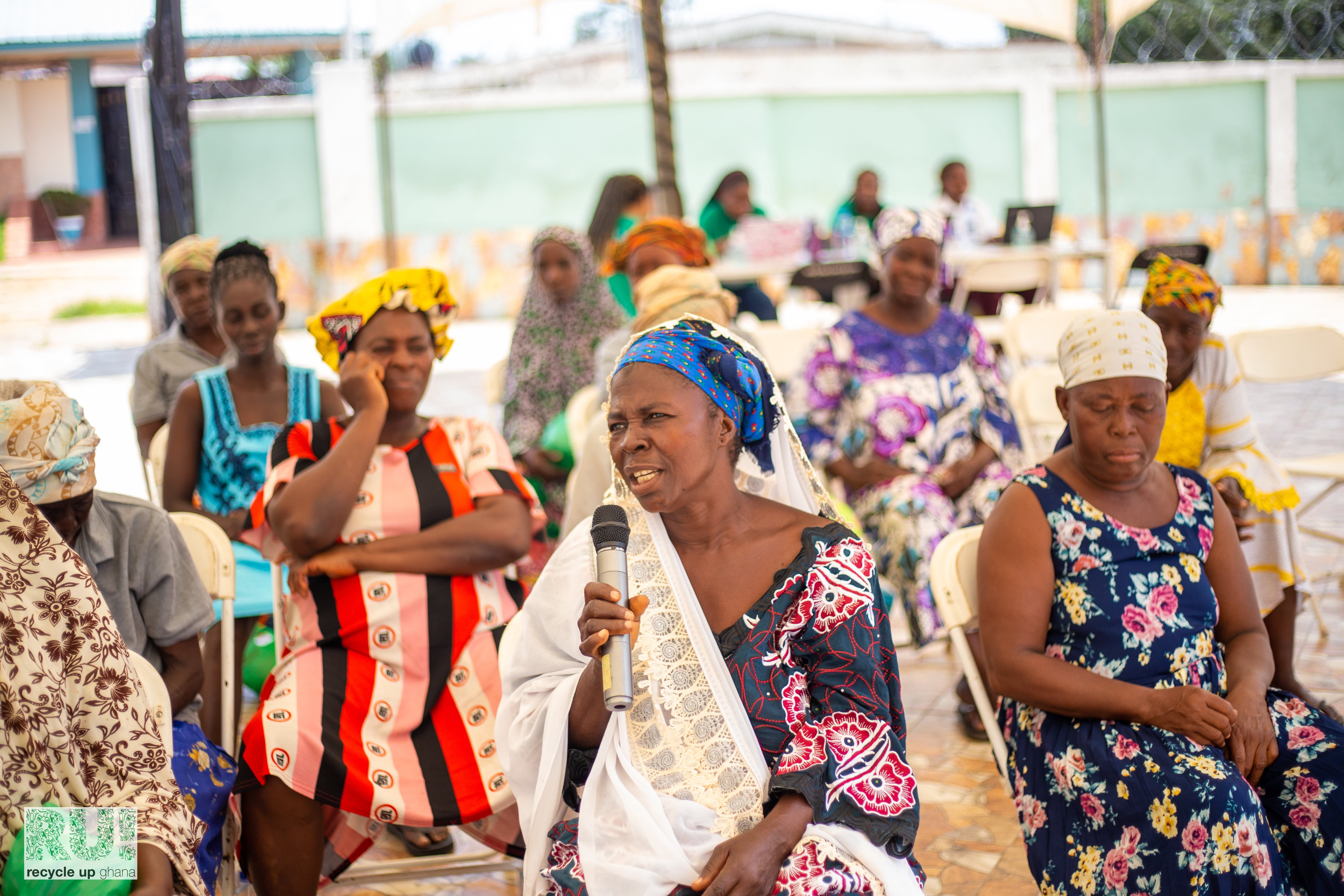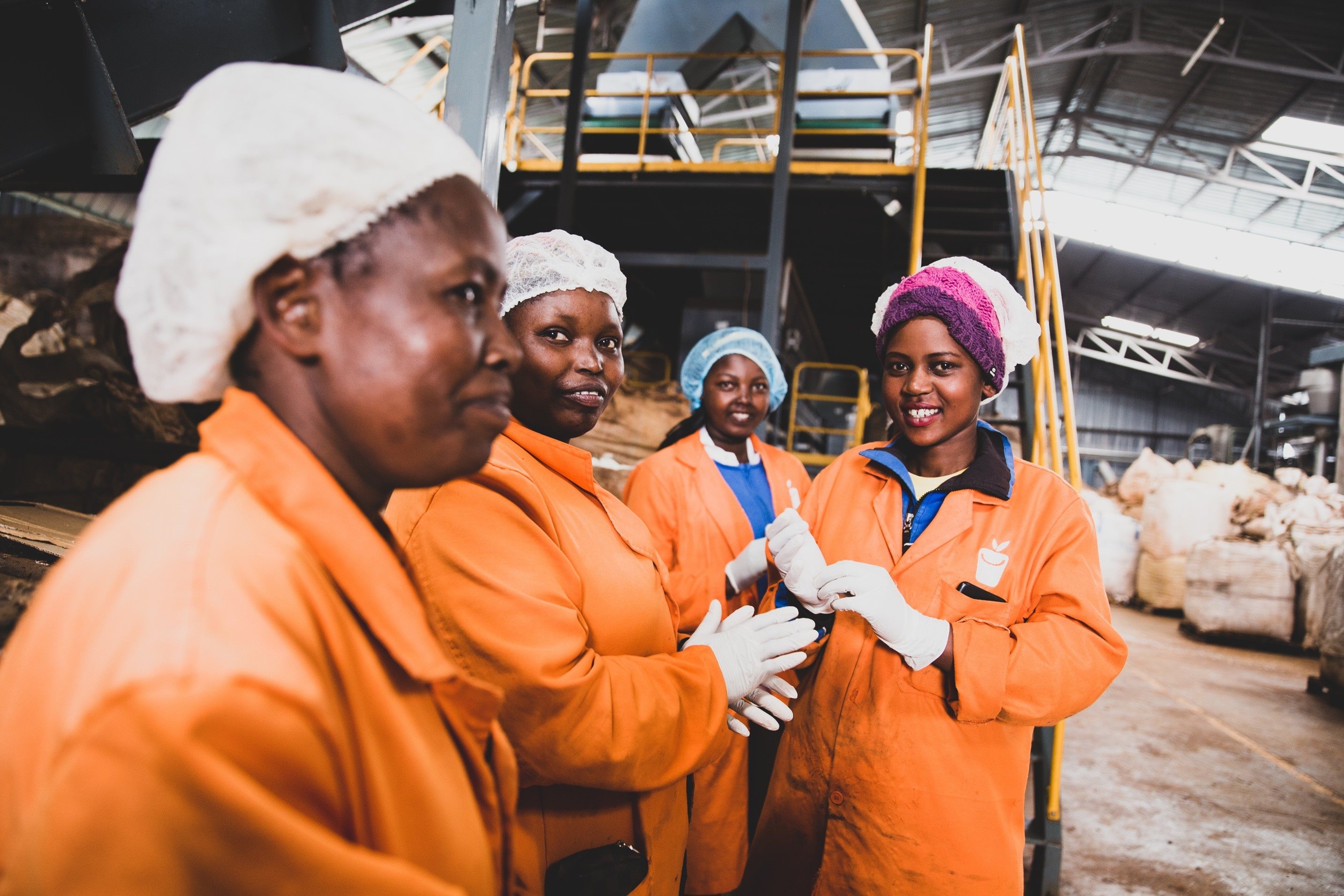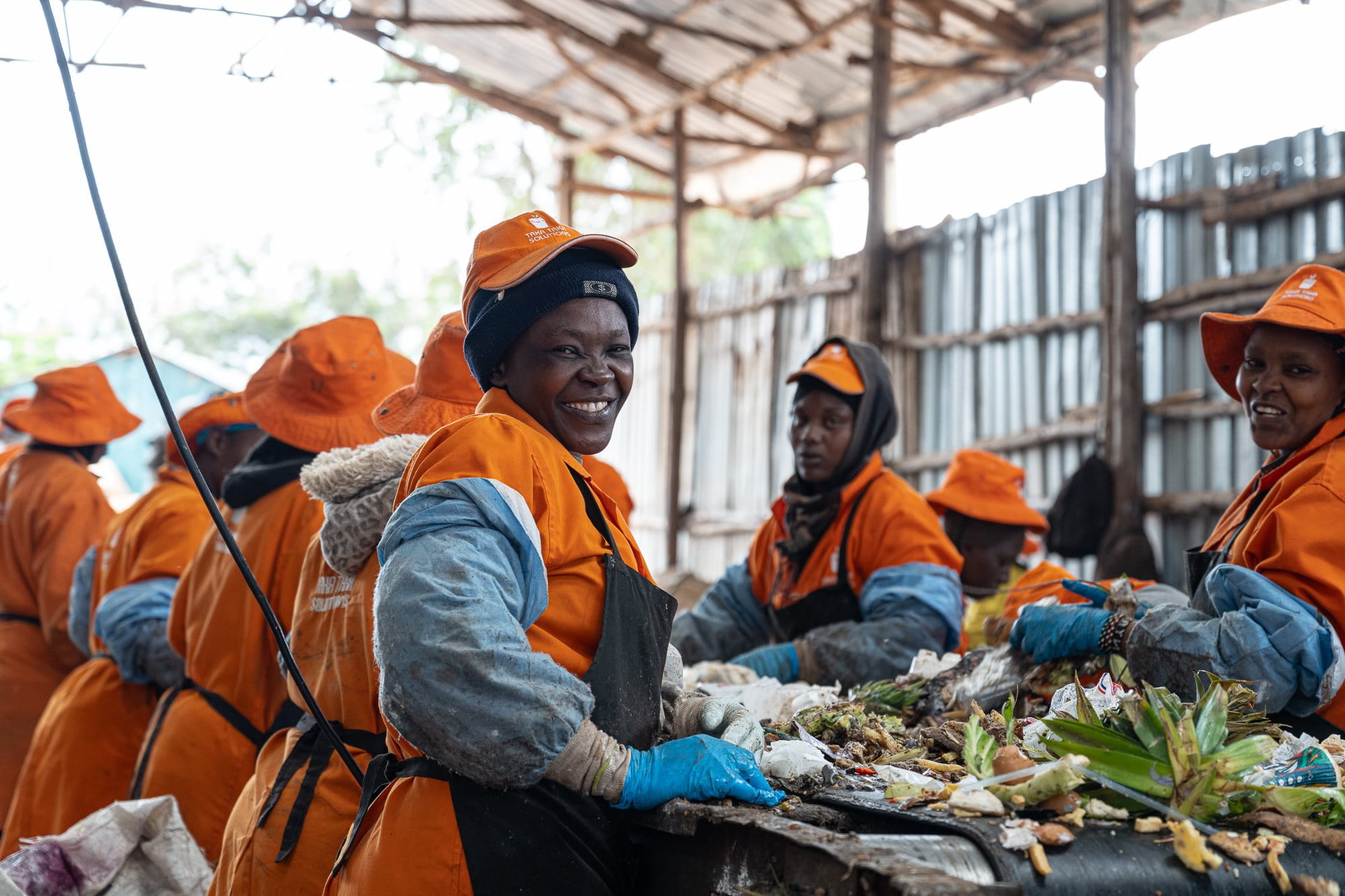Beiersdorf’s global initiative “Women in Circularity” strengthens recycling infrastructures and empowers female waste workers in emerging economies. Entering its second phase, we spoke to key people behind the impact to learn how the program is turning waste into opportunity.
“WOMEN IN CIRCULARITY“: TURNING WASTE INTO WORTH
What makes “Women in Circularity” unique among sustainability initiatives?
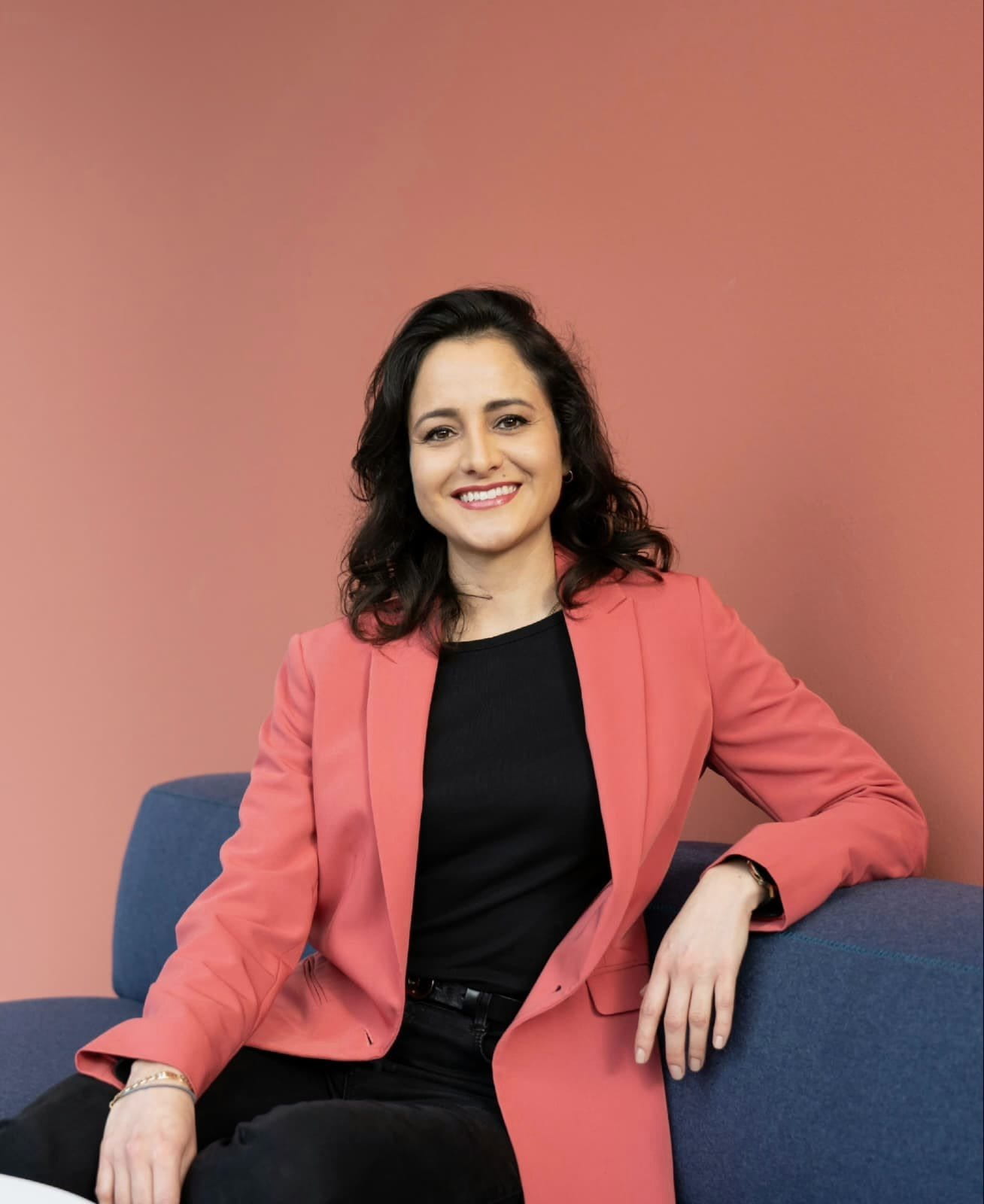
Luisa Robles Vega: This program is unique due to its scalability, long-term vision, and holistic benefits. Unlike many efforts that focus solely on environmental sustainability, “Women in Circularity” follows a socio-environmental approach to support social businesses in emerging economies. The objective is to boost plastic recycling infrastructure, while improving the livelihoods and wellbeing of workers in the waste management sector, especially women, who often operate in informal conditions, without recognition, support, or access to essential services.
What surprises and challenges have you encountered in coordinating a global initiative like this?
Luisa Robles Vega: Coordinating this initiative across multiple emerging economies has shown that global impact depends on local understanding. While plastic waste and inequality are global issues, each project organization operates in a distinct political, economic, and social context. Despite often facing instability, for example caused by crises or climate-related disruptions, they have demonstrated a high level of adaptability and resilience, delivering meaningful results. Above all, “Women in Circularity” has shown that sustainability is never one-dimensional, but intersectional and rooted in the lived experiences of those it aims to support. In this case, women waste workers who are silent heroes and vital pillars of their communities.
What does success look like for the program?
Luisa Robles Vega: Success for the “Women in Circularity” program means over 1,600 women in waste management gaining access to training, health education, occupational safety, and basic healthcare services. Embedded in local communities and supporting the scale-up of infrastructure, the program will enable the recycling of an additional 15,000 tons of plastic waste annually, once the project organizations have reached their full operational capacity. The program supports eight organizations across eight countries with funds to deliver on these goals: Delterra (Argentina), Recycle Up! Ghana (Ghana), Green Worms (India), Taka Taka Solutions (Kenya), PLAF (Philippines), Sustainindo (Indonesia), Sinba (Peru), and RePurpose (South Africa).
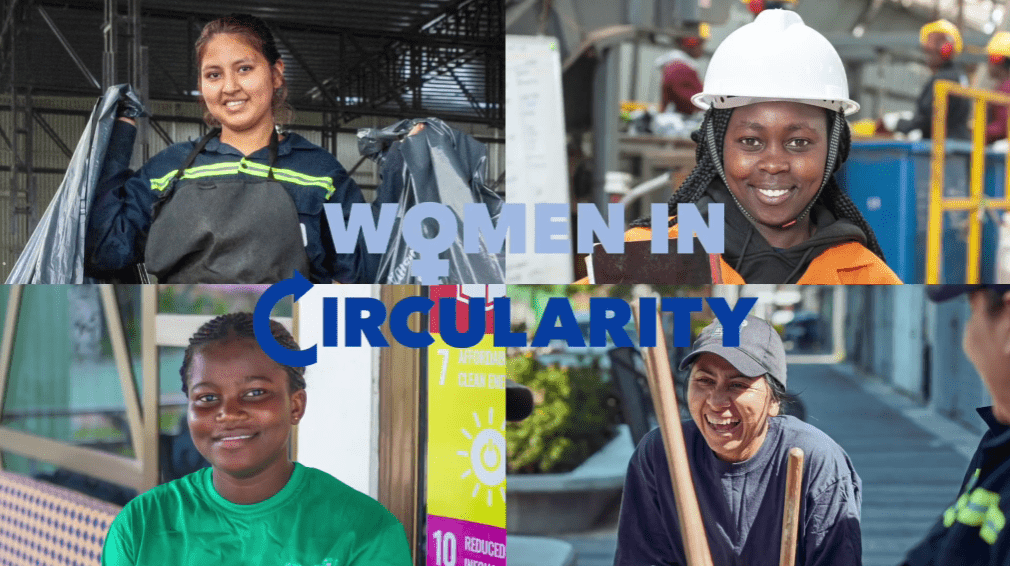
What concrete developments have you been able to make through the funding you received?
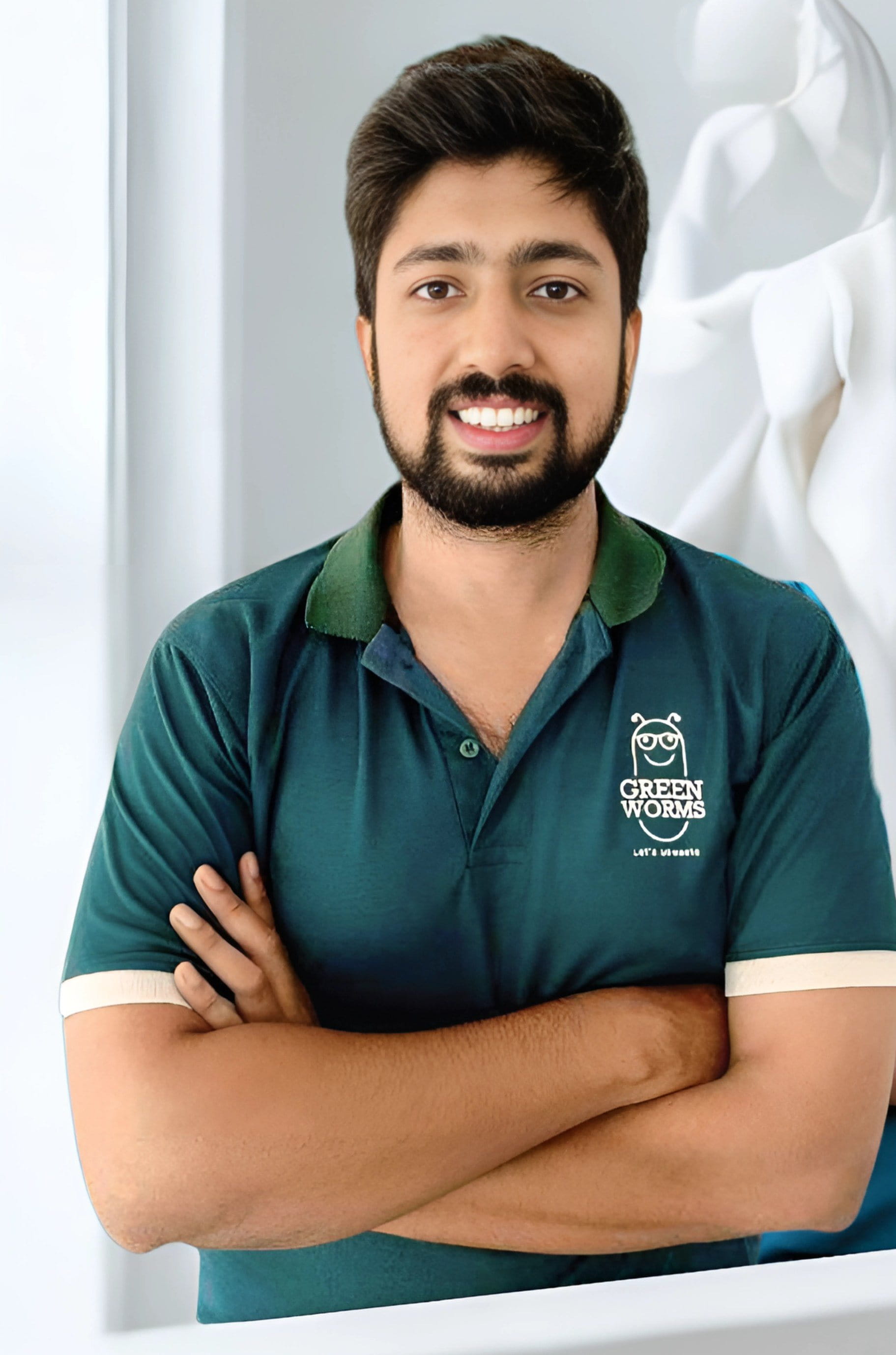
Marwan PJ: Thanks to “Beiersdorf’s Women in Circularity Program”, we’ve strengthened our recycling processes, expanded our Material Recovery Facility operations, and improved welfare benefits for our staff. That’s meant building a more reliable supply chain for low-value plastics and significantly increasing the volume of waste we recover from 25,000 to 60,000 metric tons. From a social perspective, we’ve been able to offer better working conditions, introduce standardized wages, and provide health support, improving job security, wellbeing, and dignity in the waste management sector.
What impact have you seen in your community since joining “Women in Circularity”?
Marwan PJ: Women’s leadership in waste management has really grown, especially among our self-help group members, which are community-based female collectives that play a key role in local recycling efforts. Our women waste collector network has grown from 4,000 to over 6,800 members, with more than 80% of them reporting greater income stability. That kind of change doesn’t just affect individuals, it strengthens entire communities.
How do you ensure the sustainability of your operations beyond the funding period?
Marwan PJ: We’re focused on building long-term revenue streams. By developing a market for low-value recycled granules, we’ve created a business model that sustains both our operations and our partners. Additionally, we’re converting 100% of our non-recyclable dry waste into alternative fuels for the cement industry. Another exciting stride was launching a new flexible film recycling plant with a capacity of 5,000 tons of material per year. These innovations help us stay resilient and continue turning plastic waste into valuable material.
What does joining “Women in Circularity” mean for your organization and your community?
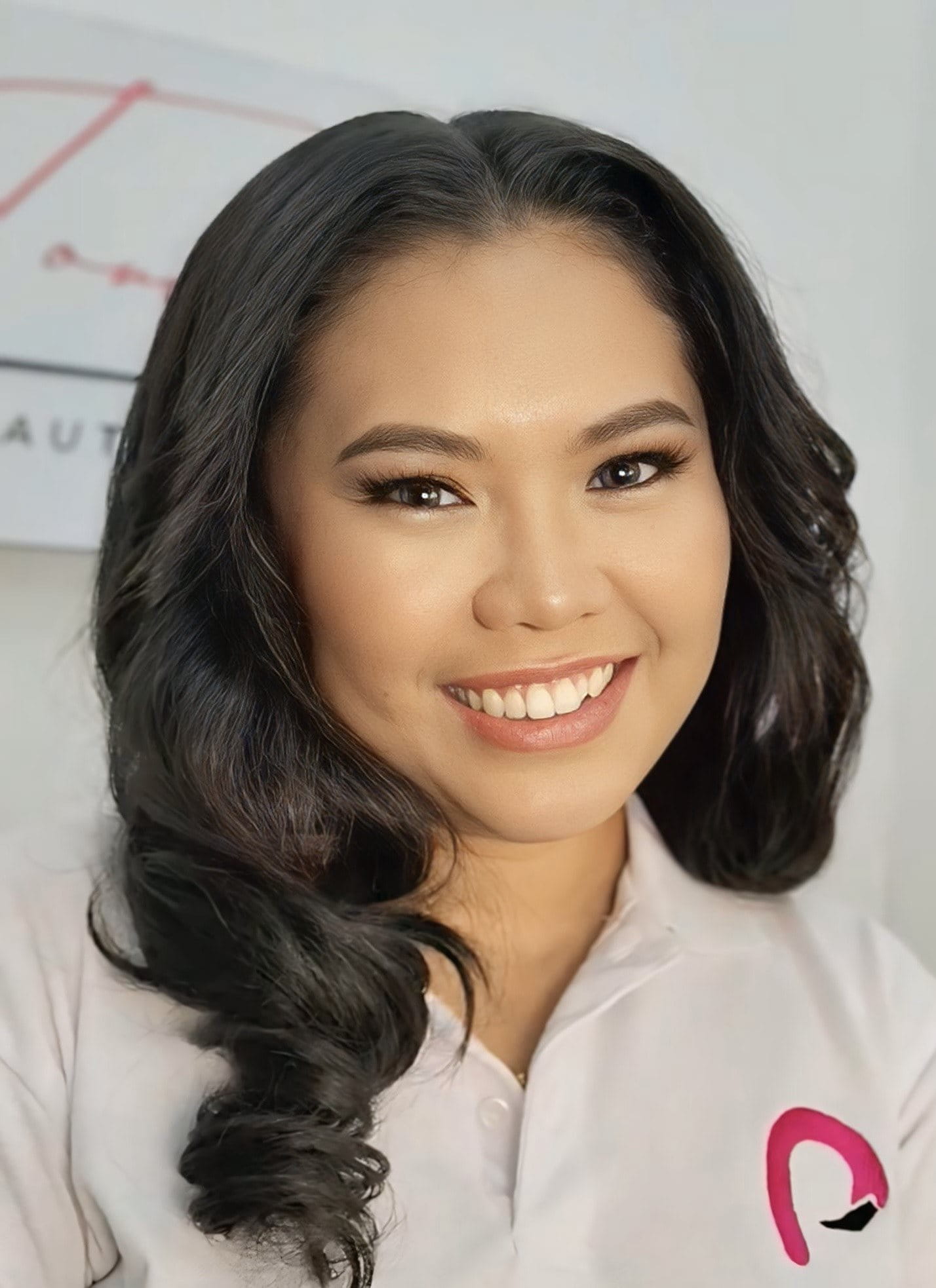
Engr. Krisha G. Rubia: The “Women in Circularity” program empowers Filipina women working at The Plastic Flamingo (PLAF) by providing sustainable livelihoods and multi-faceted support, including confidence-building and skill development. This way, they are able to contribute to household income and afford education for their children. Many of them take pride in their role that also benefits the environment and their communities. It’s more than employment, it’s a movement fostering empowerment and positive community impact.
What are the biggest waste management challenges you’re hoping to address through the partnership with Beiersdorf?
Engr. Krisha G. Rubia: Despite collecting millions of kilograms of plastic waste, processing capacity limits PLAF’s impact. Through the partnership with Beiersdorf, we aim to expand recycling operations and upgrade technology to scale processing speed. This will help address plastic pollution and related social issues, like urban flooding caused by clogged drains, enabling proactive waste management that benefits communities and the environment.
How do you plan to support and empower female waste workers in your region?
Engr. Krisha G. Rubia: Through the fund, PLAF can support female waste workers with health programs, including vaccinations, insurance, and regular check-ups, alongside financial benefits like health allowances and maternity leave. We also provide scholarships for their children. Creating a culture of care ensures women feel respected and secure, empowering them as advocates for sustainability and change within their communities.
EXPLORE ”WOMEN IN CIRCULARITY”
“Women in Circularity” is more than a recycling initiative, it’s a movement for lasting change. By enabling local organizations and empowering communities in emerging economies, Beiersdorf is supporting an inclusive society and circular solutions that last. Learn more about ”Women in Circularity”.
Related Links
About the author: Henrike Halliwell

Henrike is part of the Corporate Communications team, where she’s responsible for the topics of Corporate Social Responsibility (CSR) and Diversity, Equity & Inclusion (DE&I). Her work centers around communicating Beiersdorf’s commitment to drive social impact and an inclusive culture. Guided by a strong belief that inclusion benefits us all to thrive, individually and as a society, Henrike’s stories spotlight meaningful initiatives and passionate people who make difference.

